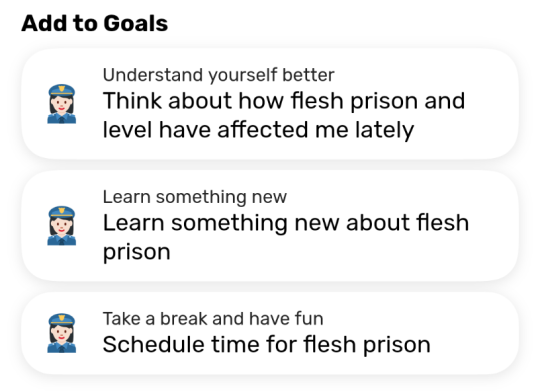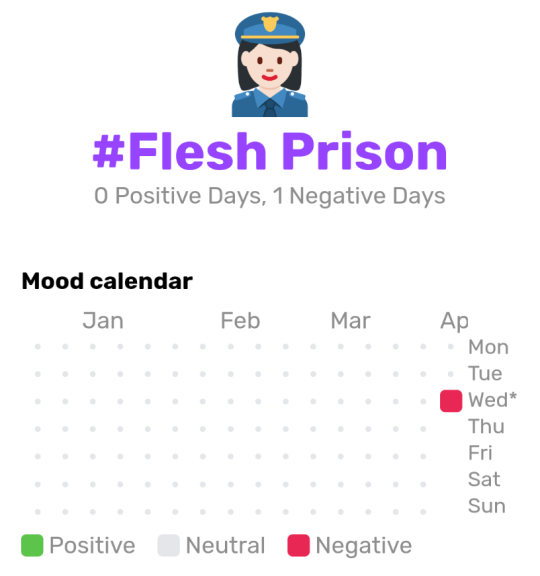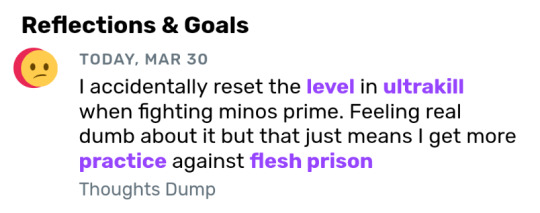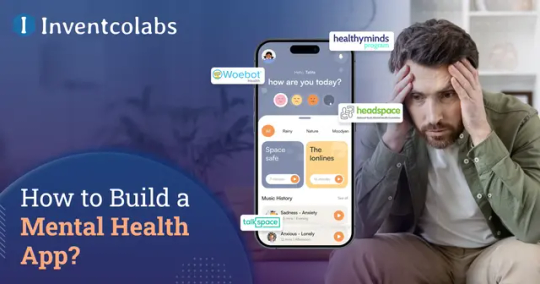#Mental Health App
Explore tagged Tumblr posts
Text
₊˚⊹♡Heya! To anyone seeing this! This isn't an ad it's just something I wanted to share, there's a really cute mental health app called "Finch"! It's very cute and has helped me for years! You get a pet bird and get to watch them grow with pets and completing tasks like drinking water to set him off on adventures! You can make a tree of all of your friends and send them good vibes if you want too! ₊˚⊹♡
#im just a girl#coquette#coquette aesthetic#girlblog#coquette dollete#girlblogger#girlblogging#coquette girl#dollette#gaslight gatekeep girlboss#finch#mental health#mental heath support#health app#mental health app#not an ad
14 notes
·
View notes
Text




A Mental Health client wanted calming scenes for the home page of their app. The images had to be able to loop continuously and change based on if the user was in light mode or dark mode. These are some of the options I came up with. In the end the client preferred the African savannah option the most, but stripped it back to work for both light and dark mode. It was really fun to work on these, while trying to figure out what the animations would be like.
#calm#mental health#mental health app#illustration#art#digitalart#adobe illustrator#vector#2d animation#digital animation#calm vibes#meditation#mindfulness
3 notes
·
View notes
Text
idk if anyone else had this but I want to find it again: I used to have an app that had both a calculator hidden setting (so it looked like a calculator until you input a password) it had a spot for photographs and videos, for contacts, as well as games like wordsearch and connect dots and others on the inside it was designed for mental health crisis and it also had some kind of specific page with some numbers to call for emergencies
I really miss having it and i know this is a long shot but if anyone knows of it or a similar one, pls let me know (i'm focusing on the games aspect btw, i do know other calculator apps that hide photos)
4 notes
·
View notes
Text

I didn't even know this was here
I got a mental health wellness app and decided my first entry was going to be about a videogame I played that day



#Finch#mental health#Jesus#Mental health app#Mental health apps#You can ask me for my code if you like
79K notes
·
View notes
Text
Mental Health App Development in 2025: Features, Cost & Process
Want to build a mental health app in 2025? Explore the latest features, technology stack, development cost, and step-by-step process to create a high-performing mental wellness platform. A professional healthcare app development company ensures compliance with industry regulations while delivering a seamless user experience. Stay ahead in the evolving digital health market with cutting-edge solutions.

#mental health#healthappdevelopment#health app#mental health app#appdevelopment#mobileappdevelopment#appdevelopmentcompany#techinnovation#techtrends#mobile app development
0 notes
Text
Pedal Power: How Cycling Can Strengthen Your Relationships
0 notes
Text
Top 5 Digital Wellness Apps for Mental Health in 2025
Discover the top 5 digital wellness apps to improve mental health, track screen time, and boost productivity. Find the perfect app for your digital balance today.
#Mental Health#Best digital wellness apps#Boost Mental Health#digital wellness#Digital Wellness App#Digital Wellness Apps#Mental Health App#Top mental health apps 2025
0 notes
Text
add me on Finch 🖤🐧
QAY4RC2KHW

1 note
·
View note
Text
Why Mental Health Apps Are Revolutionizing Self-Care in Today's World

The rise of mental health apps has transformed the way individuals approach their emotional and psychological well-being. Offering a blend of accessibility and personalized support, these apps have become an essential tool for millions of users seeking mental health care. Thanks to Innovations for Wellness and Support, mental health apps are now more advanced, making it easier for individuals to manage their mental health on a day-to-day basis.
But what exactly makes these apps so effective, and what features should they include to truly make a difference?
What Features Should a Mental Health App Have?
For a mental health app to truly help users, it must offer key functionalities. What features should a mental health app have? At the core, they need to provide tools such as guided meditation, mood tracking, and cognitive-behavioral therapy (CBT) exercises. Users also benefit from AI chatbots that deliver real-time support, helping to address stress or anxiety in the moment.
The inclusion of teletherapy is also crucial, as it allows users to connect with licensed professionals through video calls or messaging. Additionally, apps that foster a community environment, where users can share their experiences and receive encouragement, create a more holistic mental health experience.
What is the Future of Mental Health Apps?
Looking ahead, what is the future of mental health apps? AI and machine learning will continue to enhance app capabilities, allowing for more personalized experiences that respond to users' mental health patterns. We can also expect a rise in virtual reality (VR) tools, which can provide immersive therapy environments for managing phobias, anxiety, and PTSD.
As mental health technology evolves, there will be a growing focus on innovations for wellness and support training, teaching users how to build emotional resilience and maintain long-term mental well-being. This shift toward proactive mental health care will shape the future of these apps.
What Are Some Mental Health Ideas?
Mental health apps are just one part of the equation. What are some mental health ideas that can complement these digital tools? Regular practices like mindfulness meditation, exercise, journaling, and gratitude exercises can all improve mental wellness. Establishing routines that prioritize self-care, such as maintaining consistent sleep patterns and engaging in hobbies, can also enhance emotional well-being.
These approaches, combined with healthcare innovation examples such as digital mental health platforms and AI-driven diagnostics, make it easier for individuals to take control of their mental health in new ways.
Innovations for Wellness and Support
The mental health industry is continuously evolving with innovative ideas for healthcare business. Companies are developing mental health apps that combine personalized care with real-time support, making mental health care more accessible and engaging. As more organizations invest in cutting-edge solutions, the way we address mental health is becoming more user-centered and efficient.
In summary, mental health apps are revolutionizing the way people care for their mental well-being. With advanced features and a focus on innovation, these apps offer a powerful tool for those seeking support, and their role in the future of mental health care is only set to expand.
0 notes
Text
Building a Comprehensive Mental Health App Essential Features and Functions

Mental health apps have revolutionized self-care by providing accessible tools for managing mental well-being. From stress relief to mood tracking, these apps offer a range of functionalities. But what features should developers prioritize to ensure their app stands out?
Key Features of a Comprehensive Mental Health App
User-Friendly Interface
A mental health app should feature a user-friendly interface that promotes ease of use and engagement. Intuitive navigation and a visually appealing design enhance the overall user experience.
Personalized Content
Personalization is key to effective mental health apps. Offering customized resources such as coping strategies, mindfulness exercises, and relaxation techniques caters to individual needs and preferences.
Progress Monitoring
Tools for tracking mood fluctuations, behavior patterns, and treatment adherence enable users to monitor their mental health progress and make informed decisions.
Access to Professional Support
Connecting users with licensed therapists, counselors, and crisis helplines ensures access to professional support and intervention when necessary.
Innovative Features
Incorporating mental health app ideas like virtual therapy sessions, mood journals, and peer support communities enhances user engagement and effectiveness.
Data Privacy and Security
Ensuring robust data security measures, including encryption and compliance with privacy regulations, protects user confidentiality and builds trust.
Integration with Health Tools
Seamless integration with other health and wellness apps, such as fitness trackers and meditation guides, offers a holistic approach to mental and physical well-being.
Continuous Improvement
Regular updates based on user feedback and advancements in mental health research ensure the app evolves to meet users’ changing needs and expectations.
Conclusion
By prioritizing user-centric design, personalized support, professional resources, and stringent security measures, developers can create impactful mental health apps. These apps empower individuals to take control of their mental well-being and access support when needed.
0 notes
Text
Omnihelp Mental Health
Omnihelp Mental Health is a comprehensive application designed to support users in managing their mental well-being through cognitive and behavioral components. It offers a range of features aimed at understanding and addressing various mental health concerns, including mood tracking, mindfulness exercises, guided meditation sessions, cognitive-behavioral therapy techniques, educational resources, and access to professional support through therapy or mental disorder counseling.
#health#mental health#omnihelp#selfcare#wellbeing#mindfulness#wellness#therapy#app#mental disorder#stress#sleep#anxiety#depression#adhd#ptsd#bpd#counseling#Mental Health App#Mental Health Counseling#Telehealth#Mental Health Therapy#Online Therapy Help Free#mindful#Mindfulness#meditation
0 notes
Link
https://youtu.be/QsArzoCQPSk?si=l8VO-vhwfPa0Q7eI Editor's note: The sharing of any non-VA information does not constitute an endorsement of products and services on the part of VA. Veterans should verify the information with the organization offering. If you are having thoughts of
0 notes
Text
Unraveling Fintech and Mental Health Apps: Simplified for Young Minds

Hey there, young adventurers! Are you curious about fintech or how to create a mental health tracker app? Let's embark on a journey into the realms of finance, technology, and mental well-being, explained in a way that even a 7-year-old can grasp easily!
What is Fintech?
Imagine mixing money with technology to create something extraordinary – that's fintech! Short for "financial technology," it's like a magical potion that uses computers, phones, and other gadgets to make banking and money management easier and more exciting!
Fintech Class: Learning Money Magic
Ever dreamed of attending a wizard school? Fintech class is just like that, but instead of casting spells, you learn about money magic! You explore how to create apps, games, and other cool tools that help people manage their money better. It's like becoming a wizard of finance technology!
Financial Technology Firms: The Wizards Behind the Scenes
Think of financial technology firms as modern-day wizards who work behind the scenes to create marvelous tools for handling money. They craft apps, games, and other enchanting solutions that allow you to do things like sending money to friends or saving up for a new adventure!
Bank and Fintech: Best Buddies in Money Magic
Banks and fintech are like the best of friends, teaming up to make money magic happen! Banks keep your money safe, while fintech makes it a breeze to do cool stuff with your money, such as paying for items with your phone or planning for exciting journeys!
Fintech Brands: The Coolest Wizards on the Block
Fintech brands are the trendsetters, the cool wizards who create amazing stuff to make banking and finance more enjoyable. They design apps, games, and other fantastic gadgets that make managing money a fun and easy experience. Perhaps one day, you'll use a fintech brand to send money to friends or buy your favorite toy online!
Fintech Companies: Crafting Money Magic Solutions
Fintech companies are like teams of wizards working together to craft magical tools for managing money. They brainstorm ideas, develop apps and games, and sprinkle a touch of enchantment to make the world a better place – one money spell at a time!

Mental Health App Development: Building Tools for Happiness
Now, let's talk about mental health apps! These apps are like special tools that help people take care of their minds and hearts. Here's how you can create a good mental health app Development :
Consult Experts: Start by talking to mental health experts, like doctors or counselors, to understand what features your app should have.
Design Your App: Think about how you want your app to look and work. Use colors, pictures, and buttons to make it engaging and user-friendly.
Track Feelings: Allow users to track how they're feeling each day, like if they're happy, sad, or angry.
Set Goals: Enable users to set goals for themselves, such as exercising more or spending time with friends.
Provide Support: Make sure your app has resources for users to seek help if they need it, such as contact information for counselors or helplines.
Wrapping up
So there you have it, young adventurers! Fintech and mental health apps are like magical tools that help people with their money and their minds. Whether you're learning about money magic in fintech class or creating a mental health tracker app, you're on an epic quest to make the world a brighter and happier place – one spell at a time! 🌟
#mental health#mental illness#health tracker#mental health app#mental health apps#app development#health related#health & fitness#healthcare#health tips
1 note
·
View note
Text
One time I tried to find a therapist through an app and there were a whole bunch of issues with that, not the least of which was that they didn’t think I qualified for a full therapist and set me up with a “coach,” which I learned in the session meant the person had no qualifications but only could offer a listening ear. Fine, but not what I was looking for.
I attended the session because I was desperate for help and figured it was better than nothing, and then this coach told me that my generalized anxiety disorder was caused by the fact that I sit cross-legged on the couch and don’t put my feet firmly on ground when I’m sitting.
Anyway, now instead of therapy I just pretend everything’s fine.
#mental health#anxiety#mental health app#giving up as keeping going#also mental health apps are fraught with privacy concerns anyway#but whatever#thanks for nothing dierdre
0 notes